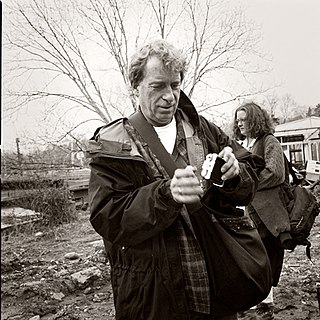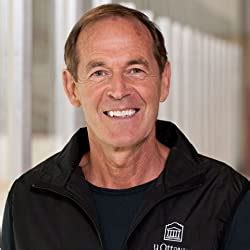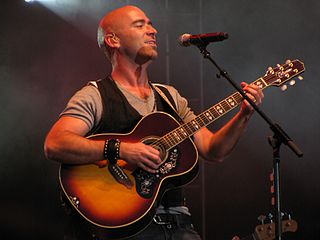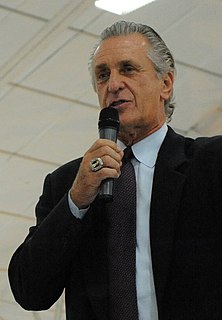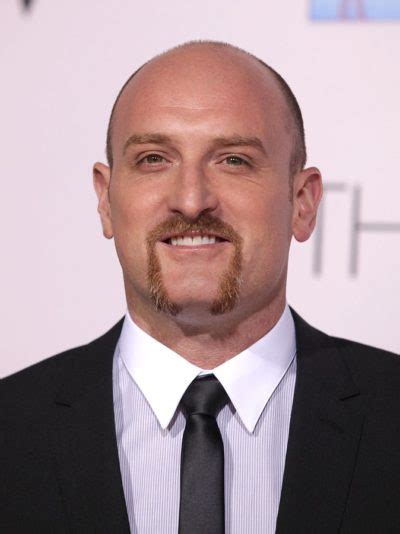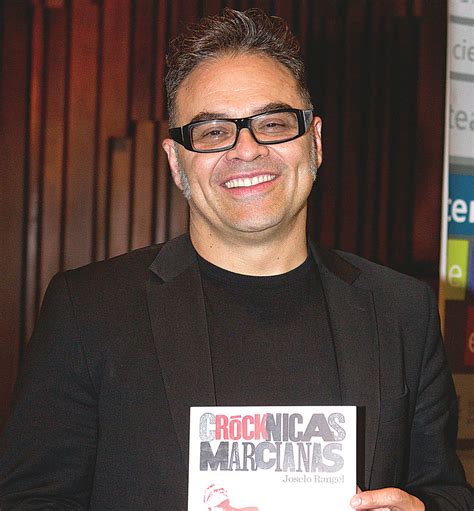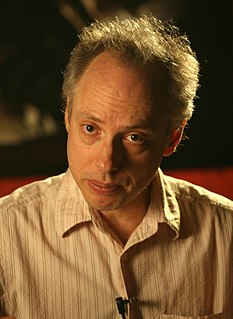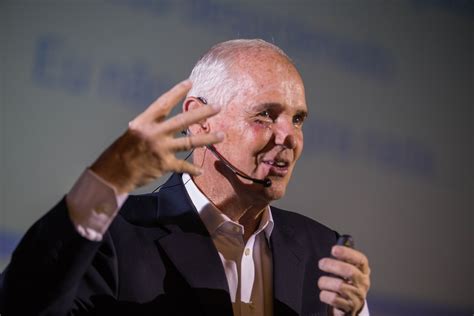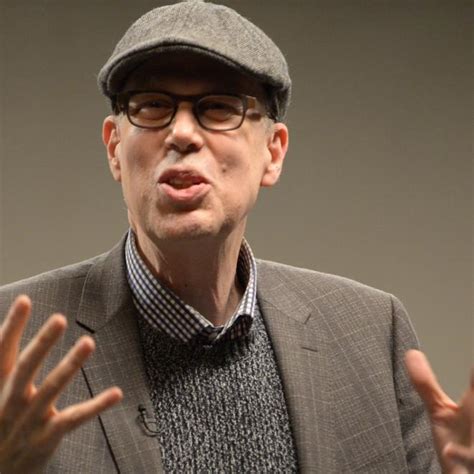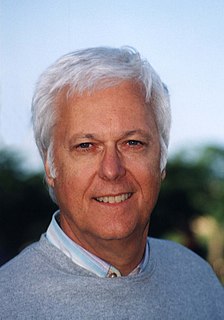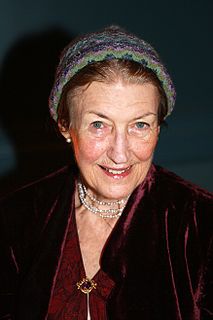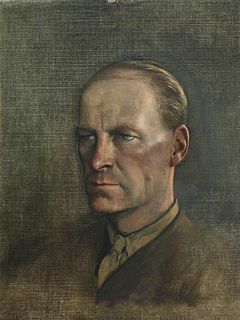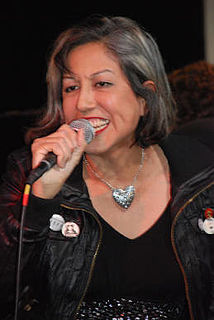Top 1070 Performances Quotes & Sayings - Page 18
Explore popular Performances quotes.
Last updated on April 21, 2025.
An interesting difference between new and experienced stage managers is that the new stage manager thinks of running the show as the most difficult and most demanding part of the job, whereas the experienced stage manager thinks of it as the most relaxing part. Perhaps the reason is that experienced stage managers have built up work habits that make then so thoroughly prepared for the production phase that they [can] sit back during performances to watch that preparation pay off.
We tend to think of consecration only as yielding up, when divinely directed, our material possessions. But ultimate consecration is the yielding up of oneself to God. Heart, soul, and mind were the encompassing words of Christ in describing the first commandment, which is constantly, not periodically, operative (see Matt. 22:37). If kept, then our performances will, in turn, be fully consecrated for the lasting welfare of our souls (see 2 Ne. 32:9).
Film is such a director's medium; you're really in their hands in terms of the real storytelling. As an actor, you can give a performance moment to moment and some of your takes will be used and some of them won't. I think there are great films you can make with bad performances, and vice versa. There are all combinations of those things. It's really down to the director what happens, I think, so that's why it's really good to work with very talented, bold directors.
...As every one of us knows, there are some festivals and games in which everything goes right, and every element lifts up, animates, and exalts every other, just as there are theatrical and musical performances which without any clearly discernible cause seem to ascend miraculously to glorious climaxes and intensely felt experiences, whereas others, just as well prepared, remain no more than decent tries.
Most problems, decisions, and performances are multidimensional, but somehow the results have to be reduced to a few key indicators which are to be institutionally rewarded or penalized... The need to reduce the indicators to a manageable few is based not only on the need to conserve the time (and sanity) of those who assign rewards and penalties, but also to provide those subject to these incentives with some objective indication of what their performance is expected to be and how it will be judged... key indicators can never tell the whole story.
In the beginning my energy and passion for acting came from an almost punk rock need to express a lot of anger wherever that may have come from. As I got older, it became or is coming more from a place of wanting to use the craft to help others in some way, to hold a mirror up to the situations that we're going through, to actually be more cautious about the way that I use the power of film and to see if there's anything that I can do in the performances that will resonate in the public a similar string that's on people's minds and is on my mind. That way we have that relationship.
I did not set out to be beloved and just, only strong." 'A King can be better than that," the Prince insisted. "And so we all begin, determined to better our fathers' performances, knowing we can change the very nature of humanity, make it better, cleaner. But then daggers strike in the night, and peasants revolt, and all manner of atrocities become a necessity as breakfast. Only Princes believe in the greater good. Kings know there is only Reign, and all things may be committed in its holy name.
My background is in painting but in school in the sixties, like many artists of that time, I believed that painting was dead. I began to work in collaboration with other artists in the creation of performances and installation works. Soon after, I started making video and photographic works and in the process became fascinated with the media itself. Before long I was setting things up just for the camera. In l970 I got a dog and he turned out to be very interested in video and photography as well.
Faith is rest, not toil. It is the giving up all the former weary efforts to do or feel something good, in order to induce God to love and pardon; and the calm reception of the truth so long rejected, that God is not waiting for any such inducements, but loves and pardons of His own goodwill, and is showing that goodwill to any sinner who will come to Him on such a footing, casting away his own performances or goodnesses, and relying implicitly upon the free love of Him who so loved the world that He gave His only-begotten Son.
At the Neighborhood Playhouse School of Theatre, Sanford Meisner said, 'When you go into the professional world, at a stock theatre somewhere, backstage, you will meet an older actor, someone who has been around awhile. He will tell you tales and anecdotes, about life in the theatre. He will speak to you about your performance and the performances of others, and he will generalize to you, based on his experience and his intuitions, about the laws of the stage. Ignore this man!'
My studio works in cycles. I am consistent with all of the practices, but I give attention to one part for a certain amount of time. I say, "Okay, I'm making performances," and sometimes that means I can't be making photographic works. As I'm maturing as an artist, years have passed and I feel that I'm becoming a better craftsperson in multiple fields, but that takes time. Also, because I trained as an actor, I hold this thing about how an actor prepares and therefore I try to prepare for all of my tasks.
I really trust the authenticity of real people and my job is to get them to be themselves in front of the camera. Often what happens is, you'll get a newcomer in front of the camera and they'll freeze up or they imitate actors or other performances that they've admired and so they stop becoming themselves. And so my job as the director is just to always return them to what I first saw in them, which was simply an uncensored human being.
The society that produced The Who, The Stones, Dylan, Paul McCartney and later on people, like myself, is over. The materialistic society that produces these kinds of bombastic performances that don't have any value or musical meaning, is very conspicuous, look at me, I'm rich, dig my brand. That's what missing, Bob Dylan made us feel worthy, I try to do the same thing. Respect for the audience with music that is meaningful and soulful. Go for what moves you and not necessarily what you think will be commercial.
I had a couple albums out that sold well for who I was at the time and the type of music I played. People started recognizing my name and face and it helped sell bigger venues. I had a bigger spotlight and I had to live up to it but I thrived under that challenge. It expedited the creative process. If I was on stage in front of 300 people instead of 30, I had to work harder at my performances because I had a greater responsibility. It was very exciting, but creative too.
Performance is made in the editing room, and I've come to see the truth in that - the idea that they say performances are usually made in the editing room because what you film is the raw material. I think just going through the process of saying, "Which take do we use? Why is that the take we want? I want that take can you edit again, I'm not sure that's the one, I think it's this one." And just because you go through that process, I think somehow it's made me sort of more open about the [actor's] possibilities.
In sport, mental imagery is used primarily to help you get the best out of yourself in training and competition. The developing athletes who make the fastest progress and those who ultimately become their best make extensive use of mental imagery. They use it daily as a means of directing what will happen in training, and as a way of pre-experiencing their best competition performances.
My goal onstage is to always have people leave feeling that they received something very special, an inspired feeling that they can take with them and into their lives. That's what the artists I love have always done for me and that's what I have always admired and tried to emulate in my own performances. I still believe that music stands alone in its power to communicate "spirit", whatever that might mean to any given fan. It's a mystery and it's something I still find so exciting and challenging at the same time.
There are some movies that deserve criticism. They want people to know that it's a great dramatic accomplishment and has some great performances in it. But, c'mon. Yes, you will have some fun if you go see 'Snakes on a Plane.' Snakes are biting people - and they're biting them right on screen. There's nothing to review. It's not 'Snakes on the Waterfront.' You don't have snakes going, 'I coulda been a constrictor.' No. Hell no. It's 'Snakes on a Plane.'
I believe that the greatest music is storytelling anyway, in a heightened medium. So I write a lot of music, and I play a lot with my guitar, I still sing a lot, but now I'm more personal about it than public, in a way. I think there will be a time where I'd like to bring the singing back into some of my performances. It all depends if the material's right, if the story's right, if it's my kind of taste in music, as well. It means so much to me. We all know how affective music can be, I just want to make sure when I do it, I'm doing it because I actually feel it and I care about it.
What matters is performances, regardless of what the name is, whether it's The Rock - which is my nickname and people call me that all the time - it's no big deal. So, whether it's The Rock or Dwayne Johnson, in terms of being recognised I just think that the goal is to be recognised as a good actor. I don't put much thought or weight into the name, or the name change, or what it is, or what does it mean? It's just a nickname.
I'm glad I can do both full-band electric and solo acoustic performances. It's nice to have contrast, so if you get fed up with one, you can just switch to the other one. It's great to go to a town and play an acoustic show, and then you can come back a year later and play electric, and the show's really fairly different. The repertoire will be 50 percent different. The musical energy is completely different.
Even though . . . 9/11 happened because . . . Bush's FBI and CIA did not detect the Al Qaeda conspiracy . . . , Bush not only failed to apologize to the nation or the victims' survivors, he demonstrated his total lack of leadership by refusing to fire or even criticize those in these agencies who, like Bush, let this nation down. As in private life, to stimulate excellence, good performances have to be rewarded and gross negligence and incompetence punished.
I valued the experience of making the recordings, and I value the performances contained therein, and I value so much of what they can represent. I also think they're a terrific listening experience. Putting them out this way was a way of trying to maintain and nurture the relationship with the audience and also shine a light on the recent past, because we are so apt to be forgetful as human beings that there was such a thing as a recent past. These are some of the reasons for making this record.
Martin Swinger is one of those rare singer-songwriters who excels at everything: singing, songwriting, guitar-playing, and being so present with his humor, tenderness, and wild mind that his performances are also deep conversations, soul to soul and heart to heart, about the quirks, surprises, and love that brings us most alive. His songs, ranging from the little plastic parts that hold the world together, to what enlightenment comes from Buddha and Betty Boop falling in love, are whimsically and wisely original and enduring.
We measure areas of performance that are often ignored: jumping in pursuit of every rebound even if you don't get it, swatting at every pass, diving for loose balls, letting someone smash into you in order to draw the foul. These 'effort' statistics are also stored on computer. Effort is what ultimately separates journeyman players from impact players. Knowing how well a player executes all these little things is the key to unlocking career-best performances.
When I first started working on movies as a production assistant, we were shooting 65, 75, 85 days. I mean, granted some of those things were "Godzilla," "Deep Impact," and those kinds of things, but these days it's like 30-35 days or 40-45 days and you just feel like you're humping trying to get everything done. It's like "Move on, move on, move on!" That's not the way to get the best performances or the most interesting shots. You have to constantly balance schedule and quality of work. For me, that's the biggest thing.
We don't think of ourselves in Cafe Tacvba as representatives. When we go and make new material, we feel that our creations are more authentic if we think of ourselves. We don't say, "Let's be the representatives and show the moment that our society is in." But when it comes to performing and we visit other countries, like New York, many people approach us, people who are outside of their own country, and we become a referent. Our shows become this sort of ritual, and our performances become that moment of identity.
I watch a lot of different films. A lot of different performances and I find a lot of little things from the films or things that actors do or people in real life who have behaviors or idiosyncrasies that I like or find interesting and I try to remember that. And then I'll do a prayer. I'll do a prayer to ask the character or the spirit of the character to come and visit me. And let's work together.
People call you "director," but it really should be "economic manager." Because everything is "Well, we can do another take here, but then you're gonna lose that shot over there." Or "The sun's going down, sorry, you're outta luck. We can't afford to." You know? And meanwhile, how do you get the performer's performance? I'm thinking the whole time all about "How can I get my day done?" And my performances are primarily a result of casting the right people at the right time in the right parts. And then I do little modifications.
You do sometimes watch performances and just think, 'I may as well give up. I won't reach that. I may as well give up.' But then there are other actors you watch and just think, 'Oh my God, yes, I want to try and do that. Try and be like that'. And Bryan Cranston is someone who I'd like to try and be like.
I've noticed a lot of people talking about the wealth of roles for powerful women in television lately. And when I look around the room at the women here and I think about the performances that I've watched this year, what I see actually are women who are sometimes powerful and sometimes not. Sometimes sexy and sometimes not. Sometimes honourable and sometimes not. And what I think is new is the wealth of roles for actual women in television and in film. That's what I think is revolutionary and evolutionary and it's what turning me on.
I think sometimes when people start doing improv there's some regression towards trying to replicate the "good" improvisers that they've read about in their improv books or heard about from their teachers. That's understandable, because they're trying to learn technique and stuff, but I actually think that my favorite performers are ones who have unique improv technique but also have a unique point of view that you can feel with them and their performances.
Truth, like beauty, varies its fashions, and is best recommended by different dresses to different minds; and he that recalls the attention of mankind to any part of learning which time has left behind it, may be truly said to advance the literatures of his own age. As the manners of nations vary, new topicks of persuasion become necessary, and new combinations of imagery are produced; and he that can accommodate himself to the reigning taste, may always have readers who perhaps would not have looked upon better performances.
I think that is funny to say because I've always loved her work and her strength and vulnerability, and the intensity of Evan's [Rachel Wood] performances. And to know her as a friend, know her as someone who we just have fun, whatever, and then see how present she is when she's working and how powerful she is. It was really awesome to get to sort of go into this different dimension with each other.
Ageing destroys youth, sickness destroys health, degeneration of life destroys all excellent qualities and death destroys life. Even if you are a great runner, you cannot run away from death. you cannot stop death with your wealth, through your magic performances or recitation of mantras or even medicines. Therefore, it is wise to prepare for your death.
Both Arthur Ashe and Billie Jean King used these phrases ("playing out of one's mind," or "over one's head") to describe their performances while winning tghe finals at Wimbledon in 1975. . . . The player loses himself in the action, continually breaki g the false limits placed on is potential. Awareness becomes acutely heightened, while analysis, anxiety and self-conscious thought are compoletly forgotten. Enjoyment is at a peak - pure and unspoiled.
Cast not away your confidence because God defers his performances. That which does not come in your time, will be hastened in his time, which is always the more convenient season. God will work when he pleases, how he pleases, and by what means he pleases. He is not bound to keep our time, but he will perform his work, honor our faith, and reward them that diligently seek him.
That's why I like listening to Schubert while I'm driving. Like I said, it's because all his performances are imperfect. A dense, artistic kind of imperfection stimulates your consciousness, keeps you alert. If I listen to some utterly perfect performance of an utterly perfect piece while I'm driving, I might want to close my eyes and die right then and there. But listening to the D major, I can feel the limits of what humans are capable of - that a certain type of perfection can only be realized through a limitless accumulation of the imperfect. And personally I find that encouraging.
You must create the character's internal life. What do I mean by internal life? I mean the thoughts, feelings, memories, and inner decisions that may not be spoken. When we look into the eyes of actors giving fully realized performances, we can see them thinking. We're interested in what they're experiencing that may never be spoken, that quality of nonverbal expression - which is as much a part of the characters as breathing and as real as what they say and do. This is their internal life. It helps us believe in the characters and care about them.
Every time I go to Europe, I remember that James Dean never saw Europe, but yet I see his face everywhere. There's James Dean, Humphrey Bogart and Marilyn Monroe - windows of the Champs Elysees, discos in the south of Spain, restaurants in Sweden, t-shirts in Moscow. My life was confused and disoriented for years by his passing. My sense of destiny destroyed - the great films he would have directed, the great performances he would have given, the great humanitarian he would have become, and yet, he's the greatest actor and star I have ever known.
I'm not very comfortable with watching my performances. I don't particularly find a great joy in it. Everything is the process of making it, of getting it, getting the job, saying yes to the job. Those are the joys. Making it is the greatest joy. And then, you have to show the bloody thing. You have to show and tell, be judged. But I don't listen. I don't pay much attention. I hear the rumblings of greatness or the arrows of discontent and harsh words. Then you go, "Oh God. Why?"
I'm popular in the United States and I'm popular in England. England is just more concentrated. The people are closer together. Venues are closer together. Many albums of mine have been popular in England, but, no hit singles. All the hit singles I had were before I went to England. So, I'm not necessarily more popular in England, I'm just popular in England, and more so for my performances than hit records. But, I enjoy doing concert halls all over America, England, Scotland and Australia.
People ask, 'Why would you cast yourself in your movie?' And, for me, it's more like an achievement that I am now not playing all the parts, you know? Like I was for so long, in all my performances and a lot of my short movies. So, that's where I'm coming from, not out of a kind of actress-y sense of myself. I mean, I don't really see myself as an actress, but more from performance: this is how you make something. You do it yourself. You're in it and you write it. I think I keep doing it that way, 'cause it's my way. It's what makes me feel like I know how to do it.
In the circle where I was raised, I knew of no one knowledgeable in the visual arts, no one who regularly attended musical performances, and only two adults other than my teachers who spoke without embarrassment of poetry and literature — both of these being women. As far as I can recall, I never heard a man refer to a good or a great book. I knew no one who had mastered, or even studied, another language from choice. And our articulate, conscious life proceeded without acknowledgement of the preceding civilisations which had produced it.
Overt intelligent performances are not clues to the workings of minds; they are those workings. Boswell described Johnson's mind when he described how he wrote, talked, ate, fidgeted and fumed. His description was, of course, incomplete, since there were notoriously some thoughts which Johnson kept carefully to himself and there must have been many dreams, daydreams and silent babblings which only Johnson could have recorded and only a James Joyce would wish him to have recorded.
During my performances, I don't like folks to take pictures because I feel that we live in a very photographic time. Photography was invented over 100 years ago, and now it's at its peak because everyone has a camera. The fact that they are taking experiences and filtering them through a mechanical lens I find amazing, but also disheartening. Amazing when you have photographs that start revolutions. Disheartening when you have people making photographs but not living.
I was full of energy, and I had a lot of bottled up rage that would come out in my stage performances. It was therapy sessions for someone who couldn't afford to go to therapy, a way to release my frustration, my inhibition. When I was little, growing up in an abusive household, I felt like I didn't have a voice. Suddenly I was on stage and people were watching me and listening to me, so even if I was singing about something that didn't have to do with abuse, when I was on stage I could express all of the anger, the rage.
I am honored to be selected as Canada's flag bearer for the closing ceremony of the 2006 Olympic Winter Games. Over the past 16 days we've had some outstanding performances by Canadian athletes and it is truly overwhelming to be selected as the flag bearer amidst the most successful Canadian Olympic Winter Games team ever.







